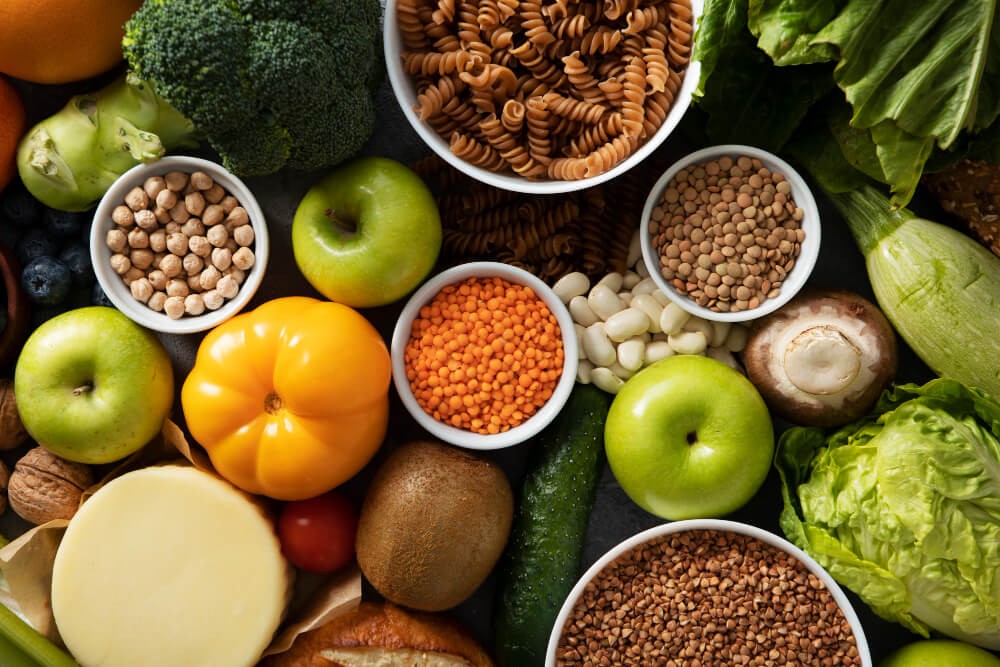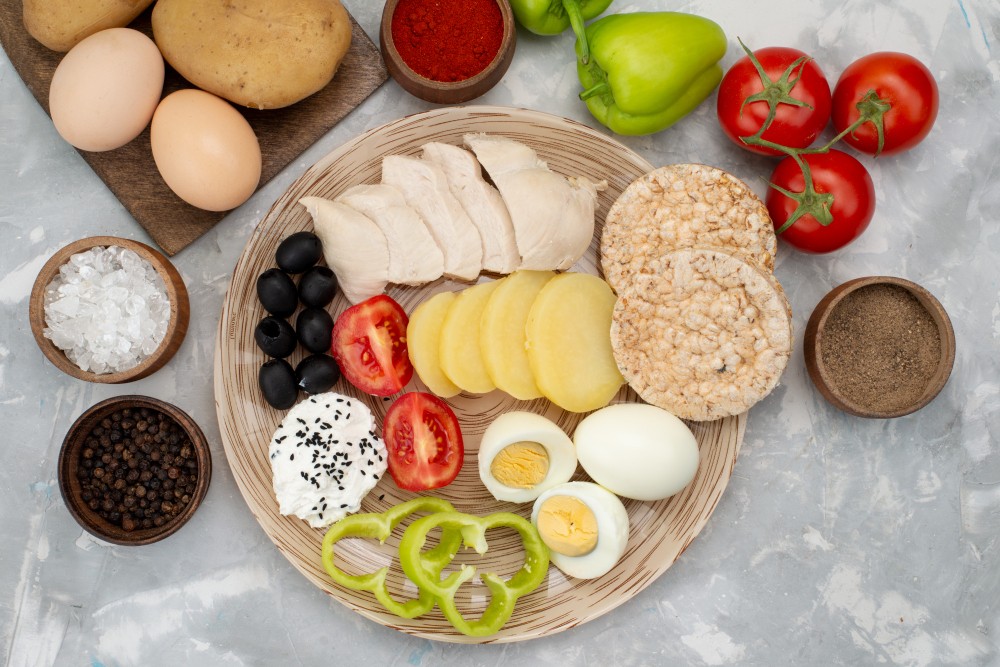Many digestive issues, such as diarrhea, constipation, and gallstones, are linked to lifestyle habits and daily diet. However, consuming the right foods can help maintain a healthy digestive system.
Food Choices for Maintaining Digestive Health
The digestive system plays a crucial role in the body’s overall health. It is where nutrients are absorbed, and metabolic waste is eliminated. Digestive issues like bloating, stomach cramps, diarrhea, and constipation may indicate more severe problems such as irritable bowel syndrome, GERD, heartburn, or Crohn's disease.
Here are some food choices to maintain digestive health:
Grains
Whole grains are a great source of fiber for digestive health. They contain both soluble and insoluble fiber, which helps regulate the digestive system.
Soluble fiber forms a gel in the stomach that slows digestion. This type of fiber helps lower cholesterol and stabilize blood sugar levels. Insoluble fiber, on the other hand, aids in moving food waste through the digestive tract and increases stool volume, making it helpful for relieving constipation.
Some recommended whole grains include quinoa, sorghum, whole wheat bread, corn, and buckwheat.
Green Vegetables
Green leafy vegetables are packed with fiber and vital nutrients, such as folate, vitamin C, vitamin A, and vitamin K. Studies suggest that green vegetables contain certain sugars that encourage the growth of beneficial gut bacteria. A healthy gut microbiome supports immunity, digestive health, and brain function.
Examples of green vegetables you can include in your diet are kale, spinach, bok choy, and others.
Low-fat Protein
For those with digestive issues, like irritable bowel syndrome, it’s better to avoid high-fat foods as they can strain the digestive system. Opt for low-fat protein sources like fish, lean poultry, eggs, nuts, and tofu.
Fermented Foods
Fermented foods not only extend shelf life but also enhance the nutritional value of food. These foods are rich in probiotics, beneficial bacteria that help promote smooth digestion and nutrient absorption.
Some healthy fermented foods include pickles, tempeh, yogurt, kimchi, and kombucha.
Ginger
Ginger can help reduce bloating and other digestive discomforts. You can consume fresh ginger or use dried ginger powder in food or drinks.
However, ginger may cause heartburn or diarrhea in some people. If you experience these symptoms after eating ginger, it is best to limit your intake.
Drink More
In addition to food, staying hydrated is vital for digestive health. Water helps eliminate waste and softens stools. Balancing fiber intake with adequate water consumption can relieve constipation and promote smoother digestion.
Incorporating fiber-rich foods and drinking enough fluids can support digestive health. To maintain a healthy system, focus on increasing your intake of vegetables, fruits, fermented foods, and proper hydration. For further guidance on nutrition, you can use the consultation feature on the Ai Care app, available for download on the App Store or Play Store.
Looking for more information about health tips and tricks, first aid, and other home remedies? Click here!
- dr Hanifa Rahma
John Hopkins Medicine. 5 Foods to Improve Your Digestion. Available from: https://www.hopkinsmedicine.org/health/wellness-and-prevention/5-foods-to-improve-your-digestion
NHS. Good Foods to Help Your Digestion. Available from: https://www.nhs.uk/live-well/eat-well/digestive-health/good-foods-to-help-your-digestion/
Nall, R. (2023). What are the best foods to aid digestion?. Available from: https://www.medicalnewstoday.com/articles/326596
Fries, W. (2023). Super Steps to Boost Digestive Health. Available from: https://www.webmd.com/digestive-disorders/ss/slideshow-digestion-tips












